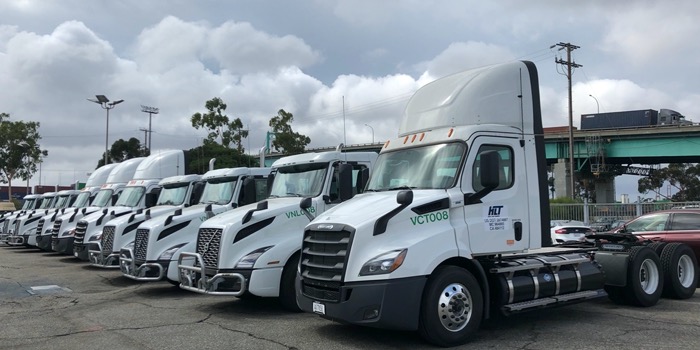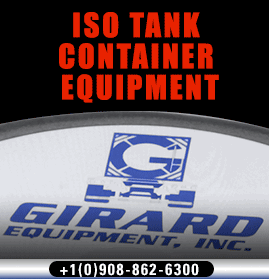Over 100 “clean trucks” now operate at the ports of Long Beach and Los Angeles
Meeting the challenge to clean up some of the most polluted air in the country, Southern California has hit a new milestone with over 100 trucks outfitted with the cleanest ultra low-NOx engines available now operating in the Port of Los Angeles and Port of Long Beach.
Visionary port trucking companies are leading the transformation from diesel to clean trucks that are equipped with the ultralow-NOx Cummins Westport (CWI) ISX12N engine and fuelled with Clean Energy Fuels Corp. Redeem™ renewable natural gas (RNG), the cleanest fuel available for heavy-duty trucks. The Clean Air Action Plan (CAAP), adopted by the San Pedro Bay Ports in 2017, called for the transformation of trucking away from diesel and this change is now underway.

These companies include Overseas Freight, Total Transportation Services, Pacific 9 Transportation, 4 Gen Logistics, Orange Avenue Express, NFI industries, Green Fleet Systems, MDB Transportation, Green Trucking LLC, West Coast Trucking, and Tradelink Transportation.
The California Air Resources Board (CARB) has approved a $533 million plan for clean transportation investments which will promote clean vehicle technologies such as natural gas trucks. The plan should ensure the statewide Clean Vehicle Rebate (CVRP) and Hybrid and Zero-Emission Truck and Bus Voucher Incentive Projects (HVIP) effectively address the need to accelerate the cleanup and transformation of California’s vehicle fleet.
The transportation sector is responsible for about 40 per cent of California’s greenhouse gas (GHG) emissions and more than 80 per cent of the state’s smog-forming NOx emissions, which are a key source of air pollution. According to the annual emissions inventories prepared by both ports, trucks are the largest source of GHG emissions and the second largest source of NOx emissions from port-related activities.
The trucks are outfitted with the Cummins CWI ISX12N natural gas engine, which achieves the lowest emission levels in North America while delivering outstanding performance and reliability. The ISX12N is certified by California Air Resources Board (CARB) to reduce smog-forming NOx emissions by 90 per cent compared to the current engine standard, and by 98 per cent when compared to the almost 8,000 older diesel trucks operating in the ports today.
Redeem is the first commercially available RNG vehicle fuel. It is derived from capturing biogenic methane that is produced from the decomposition of organic waste from dairies, landfills, and wastewater treatment plants. According to CARB, RNG can reduce GHG emissions by 40 per cent to over 400 per cent depending upon its waste source compared to diesel emissions, moving beyond zero GHG emissions.
RNG-powered trucks now proven for port trucking
Clean Energy and CWI recently concluded a demonstration of 20 Class 8 trucks outfitted with the Cummins ISX12N engine and fueled with Redeem RNG. The project was funded by Clean Energy, CARB, the California Energy Commission (CEC), South Coast Air Quality Management District (SCAQMD). The project followed seven trucking companies evaluating the technology in the demanding duty cycles of port and regional trucking.
The 20 demonstration trucks have traveled over 800,000 miles, moving goods throughout the southern California region from the ports to Commerce, Fontana, Riverside, Moreno Valley, San Diego, the Central Valley and other typical port container destinations. Several of the participating fleets have either already purchased additional ultra low-NOx trucks or plan to do so.
The project sought to generate interest in ultra low-NOx trucks, particularly with the incentive funding that California is providing to help truckers transition to this clean technology. Ultra low-NOx trucks are key strategies for improving air quality in the CARB State Implementation Plan, SCAQMD Air Quality Management Plan, and the Ports’ CAAP. Next year SCAQMD is expected to vote on “indirect source” regulations that target cargo-moving industries, primarily diesel trucks.
For more information visit www.cleanenergyfuels.com
4th November 2019


















